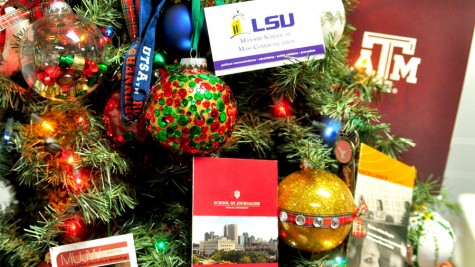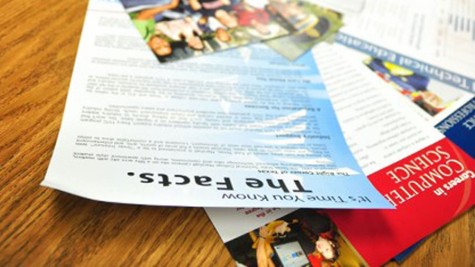College applications: Applicable advice
January 5, 2015
As seniors stress and sweat over their applications, some juniors find themselves dreading being in the exact same position a year from now.
According to junior Jasmine Nguyen, the reason that many students view the application process daunting is because of a lack of information. There are so many questions floating around that climbing a mountain might be more preferable to filling out an application.
“The process of applying and having everything ready in time is so stressful, because I’m still unsure about the steps of applying,” Nguyen said. “Not to mention balancing that on top of all my classes next year. Fall semester of senior year is a pretty critical period in someone’s life.”
According to seniors who faced these concerns last year, starting early is the key to the application process. As for questions and confusion about the process itself, counselor Sarah Ferguson says the best option is to visit the colleges’ websites, because all of the information for that particular college’s application process will be on there.
“I advise students to start looking around at colleges, if they haven’t already, by their junior year so they know where to visit,” Ferguson said. “Many schools have programs where students can begin working on applications the summer after their junior year. I would advise that students start working on them as soon as they open up.”
If students still face questions about what they want to do in college or what career to choose, Ferguson recommends taking the various assessment programs the school offers.
“ASVAB is a test we hold in October that takes about three periods,” she said. “It helps determine strengths and interests and which career paths line up with that. Another one we have is Career Cruising, which has a career match test on their website that students can do themselves. It really just comes down to research.”
According to College Board, an application commonly consists of: the basic application form, an application fee, a high school transcript, test scores, letters of recommendation and essays. Although it may seem like a lot to do more than once, senior Katelyn Sanders recommends applying to several different colleges.
“I think it’s good to apply to a lot of colleges,” Sanders said. “People get more opportunities to go where they want to go that way. It’s good to just try, even if someone doesn’t know if they’re going to get in.”
Although many might doubt their ability to get into schools with low acceptance rates, Ferguson advises students to fight for their aspirations.
“If it’s your goal to get in somewhere, then pursue that goal,” Ferguson said. “Do everything you can to make it work.”
For more information, visit https://bigfuture.collegeboard.org/get-in

